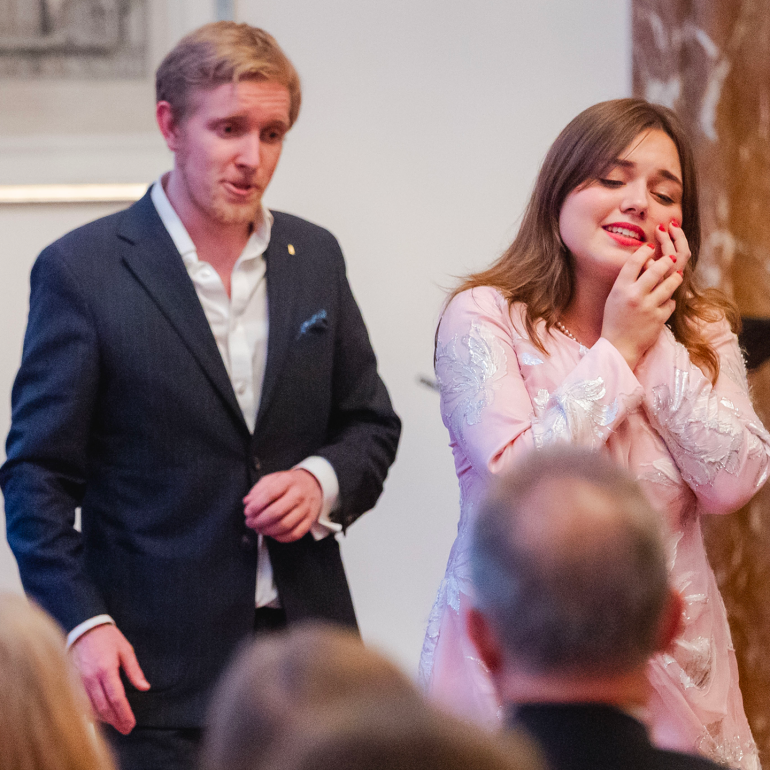More about the programme
Die Dorfkomtesse (The Village Countess)
Music: Rachel Danziger van Embden (1870–1946?)
Libretto: Erich Urban (1875–1951) & Alexander Sigmund Pordes-Milo (1878–1931)
Arrangement and staging: Kai Hinrich Müller
Synopsis
A village in the Tyrol is visited by Crown Prince Karl Emanuel. The locals, including Zuckerl (the mayor and innkeeper), Mariandl (Zuckerl’s daughter), Hans Jäger (the forester) and Princess Flori (the owner of the village), are beside themselves with joy. The ladies yearn to meet the Crown Prince. Hans, Mariandl’s secret admirer, outwardly shares their enthusiasm, yet is also riven with jealousy. As the story unfurls, the protagonists become ever more flirtatious, with not even the Prince’s valet being immune. Princess Flori pretends to be the “village countess” and ultimately asks Karl Emanuel to prove his affection by bringing her flowers from the top of the mountains. The smitten Crown Prince complies with her wish and the two get engaged. Hans and Mariandl fall into each other’s arms too.
In the first half of the 20th century, Rachel Danziger van Embden was a renowned operetta composer. Die Dorfkomtesse (The Village Countess) premiered in Stockholm in 1909, following which it was staged in Berlin (the production was even mentioned in the New York Times). In 1940, the Nazis listed Rachel Danziger van Embden in the infamous Lexikon der Juden in der Musik (Encyclopaedia of Jews in Music). We do not know with certainty the circumstances surrounding the final years of the composer’s life. According to some sources, she died in the Theresienstadt ghetto, where she was among the first to be transported. The latest research supports the assumption that she fled to the United Kingdom, where she probably passed away in 1946.
The operetta will be performed in the original German in an abridged concert version. The audience will have a German libretto available. The programme of the first part of the evening features Maria Herz and Arnold Schönberg songs. The concert is without an intermission.





























